Audi Q2 vs Mercedes B Class - Differences and prices compared
Compare performance (300 HP vs 238 HP), boot space and price (24900 £ vs 33100 £ ) at a glance. Find out which car is the better choice for you – Audi Q2 or Mercedes B Class?
Costs and Efficiency:
Price and efficiency are often the first things buyers look at. Here it becomes clear which model has the long-term edge – whether at the pump, the plug, or in purchase price.
Audi Q2 has a clearly perceptible advantage in terms of price – it starts at 24900 £ , while the Mercedes B Class costs 33100 £ . That’s a price difference of around 8272 £.
Fuel consumption also shows a difference: Mercedes B Class manages with 2.50 L and is therefore clearly more efficient than the Audi Q2 with 4.80 L. The difference is about 2.30 L per 100 km.
Engine and Performance:
Power, torque and acceleration are the classic benchmarks for car enthusiasts – and here, some clear differences start to show.
When it comes to engine power, the Audi Q2 has a distinct edge – offering 300 HP compared to 238 HP. That’s roughly 62 HP more horsepower.
In acceleration from 0 to 100 km/h, the Audi Q2 is clearly perceptible quicker – completing the sprint in 4.90 s, while the Mercedes B Class takes 6.50 s. That’s about 1.60 s faster.
There’s also a difference in torque: Mercedes B Class pulls to a small extent stronger with 450 Nm compared to 400 Nm. That’s about 50 Nm difference.
Space and Everyday Use:
Beyond pure performance, interior space and usability matter most in daily life. This is where you see which car is more practical and versatile.
Both vehicles offer seating for 5 people.
In curb weight, Audi Q2 is slight lighter – 1330 kg compared to 1405 kg. The difference is around 75 kg.
In terms of boot space, the Mercedes B Class offers slightly more room – 455 L compared to 405 L. That’s a difference of about 50 L.
When it comes to payload, Mercedes B Class barely noticeable takes the win – 550 kg compared to 510 kg. That’s a difference of about 40 kg.
Who wins the race in the data check?
The Mercedes B Class is decisively ahead in the objective data comparison.
This result only shows which model scores more points on paper – not which of the two cars feels right for you.
Costs and Consumption
View detailed analysis
Engine and Performance
View detailed analysis
Dimensions and Body
View detailed analysis
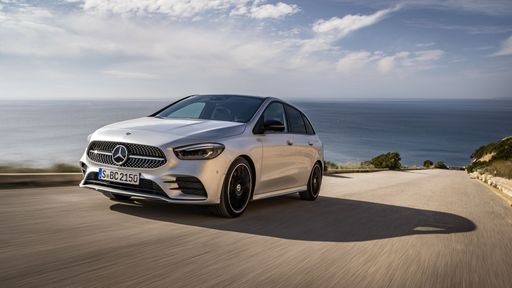
Mercedes B Class
Audi Q2
The Audi Q2 packs Audi’s premium attitude into a compact, cheeky package that turns city streets into a runway for tasteful design and clever practicality. It’s an easy car to live with thanks to an upscale cabin, composed manners and sprightly handling, and while it won’t satisfy someone chasing sports-car thrills, it’s a smart, stylish pick for buyers who want substance with a wink.
details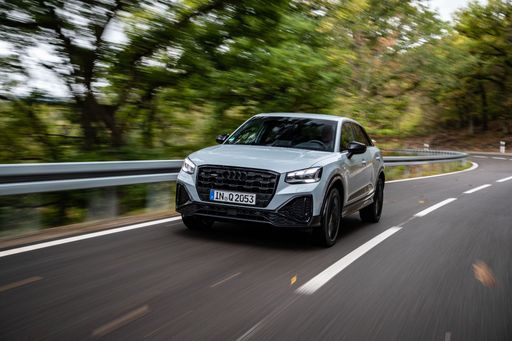
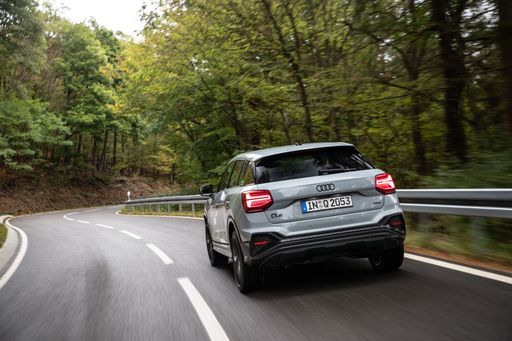
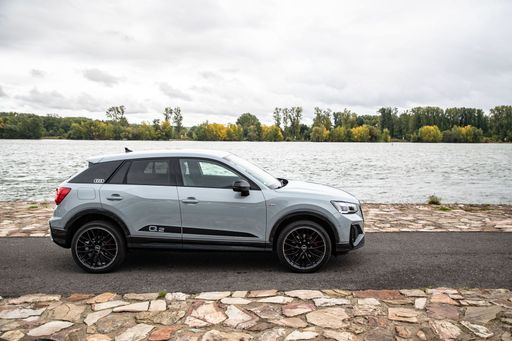
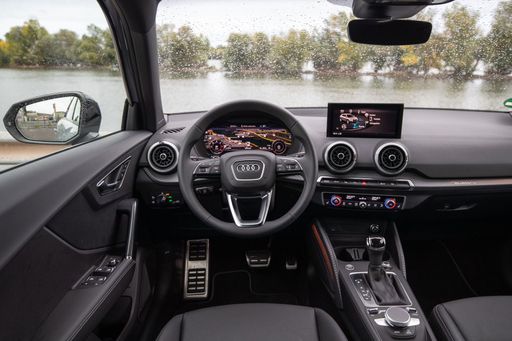
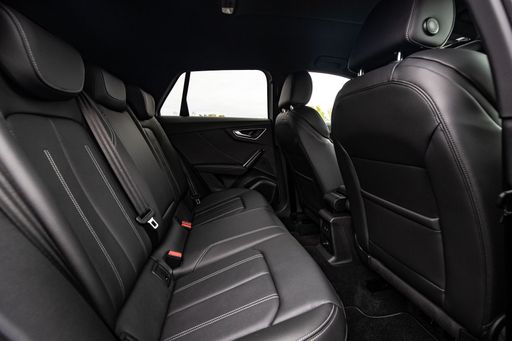
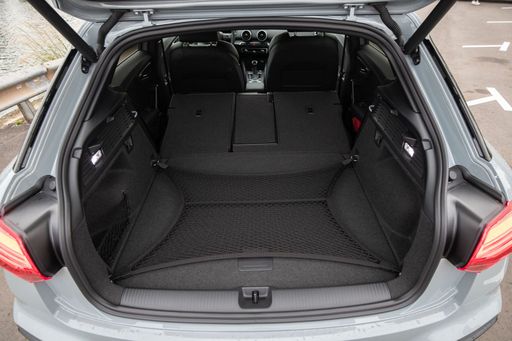
Mercedes B Class
The Mercedes B-Class is a smart, grown-up compact people carrier that dresses everyday practicality in a near‑premium polish, perfect for buyers who want comfort and a classy badge without the theatrics. It won’t set your pulse racing on a back road, but it will make school runs, commutes and grocery hauls feel pleasantly civilized — a reliable, slightly posh companion for real life.
details
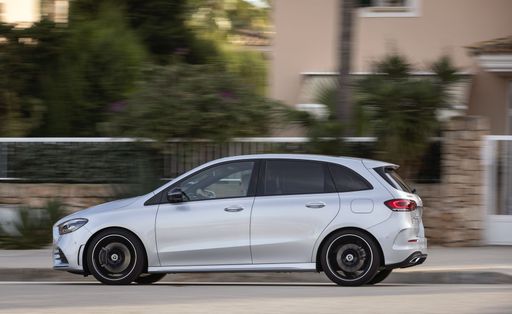
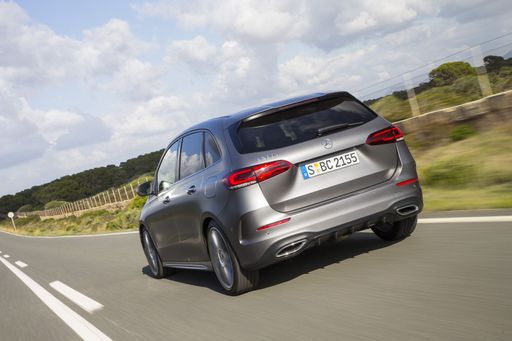
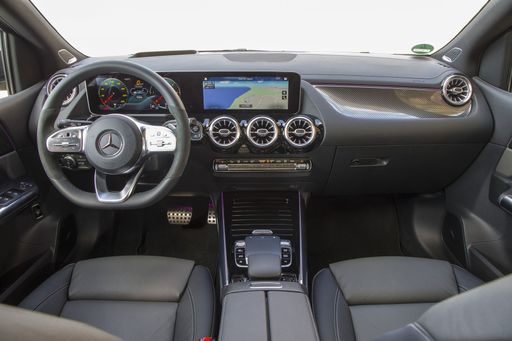
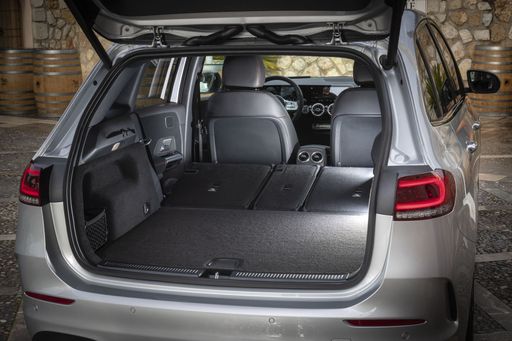
Costs and Consumption |
|
|---|---|
|
Price
24900 - 43600 £
|
Price
33100 - 52500 £
|
|
Consumption L/100km
4.8 - 8.1 L
|
Consumption L/100km
2.5 - 6.9 L
|
|
Consumption kWh/100km
-
|
Consumption kWh/100km
-
|
|
Electric Range
-
|
Electric Range
83 km
|
|
Battery Capacity
-
|
Battery Capacity
12.90 kWh
|
|
co2
127 - 183 g/km
|
co2
56 - 156 g/km
|
|
Fuel tank capacity
-
|
Fuel tank capacity
35 - 51 L
|
Dimensions and Body |
|
|---|---|
|
Body Type
SUV
|
Body Type
MPV
|
|
Seats
5
|
Seats
5
|
|
Doors
-
|
Doors
5
|
|
Curb weight
1330 - 1610 kg
|
Curb weight
1405 - 1745 kg
|
|
Trunk capacity
355 - 405 L
|
Trunk capacity
405 - 455 L
|
|
Length
-
|
Length
4419 mm
|
|
Width
1794 - 1802 mm
|
Width
1796 mm
|
|
Height
-
|
Height
1562 mm
|
|
Max trunk capacity
-
|
Max trunk capacity
1440 - 1540 L
|
|
Payload
450 - 510 kg
|
Payload
505 - 550 kg
|
Engine and Performance |
|
|---|---|
|
Engine Type
Petrol, Diesel
|
Engine Type
Plugin Hybrid, Petrol MHEV, Diesel
|
|
Transmission
Manuel, Automatic
|
Transmission
Automatic
|
|
Transmission Detail
Manual Gearbox, Dual-Clutch Automatic
|
Transmission Detail
Dual-Clutch Automatic
|
|
Drive Type
Front-Wheel Drive, All-Wheel Drive
|
Drive Type
Front-Wheel Drive, All-Wheel Drive
|
|
Power HP
116 - 300 HP
|
Power HP
116 - 238 HP
|
|
Acceleration 0-100km/h
4.9 - 10.5 s
|
Acceleration 0-100km/h
6.5 - 10 s
|
|
Max Speed
-
|
Max Speed
200 - 250 km/h
|
|
Torque
200 - 400 Nm
|
Torque
200 - 450 Nm
|
|
Number of Cylinders
3 - 4
|
Number of Cylinders
4
|
|
Power kW
85 - 221 kW
|
Power kW
85 - 175 kW
|
|
Engine capacity
999 - 1984 cm3
|
Engine capacity
1332 - 1991 cm3
|
General |
|
|---|---|
|
Model Year
2025
|
Model Year
2024 - 2025
|
|
CO2 Efficiency Class
D, F, E, G
|
CO2 Efficiency Class
B, D, E, F
|
|
Brand
Audi
|
Brand
Mercedes-Benz
|
What drivetrain options does the Audi Q2 have?
The Audi Q2 is offered with Front-Wheel Drive or All-Wheel Drive.




